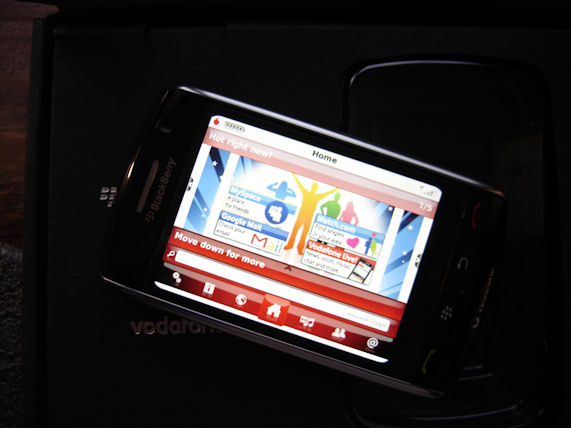Are developers ditching the fremium model?

Free-to-play vs. paid for mobile content. it’s a fight that’s raging for the last five years and it seems as though we’re no closer to a resolution. For many developers, companies and gamers, freemium content is the way forward. From a business perspective, it allows brands to get a product to the masses in the most accessible way possible. For players, it’s a way to enjoy games without having to pay for the luxury.
Of course, there are those on the other side of the divide that argue paid for or “premium” games actually offer better value. For example, the 2016 Monetization Report by Swrve found that players spend, on average, $24.66 on in-app purchases. Now, when you compare this to the average cost of an iOS or Android game ($0.48 according to Statista), it’s clear that premium content offers players more bang for their buck.
In fact, the Swrve report also suggests that freemium may not be the most effective business strategy anymore. According to the data, just 1.9% of mobile gamers actually make in-app purchases. Although they often spend a fair amount of money when they do, the number of active purchasers is low. Does this mean users are getting wise to the freemium model? Quite possibly – and it seems as though some companies are responding.
Consumers now want more from their free content

In the iGaming sector, bonuses and free credits are a big thing. When a player joins a new online casino, they expect some sort of added value and, moreover, a way to earn additional rewards as they place bets. Before casino operators went mobile, all of these bonuses had to be accessed via a user’s desktop. Today, however, with players downloading free apps, operators have had to respond with the same added value. Offering a mobile app for free is great, but if players are forced to spend money and not get the same value as they would online, then the product won’t inspire them. Take, for example, operators offering the standard online casino welcome bonus. Players that log in to the desktop site for Betway Casino and make an opening deposit will receive extra money (100% extra). Although this money is subject to certain playing requirements, it’s possible for players to use it for the betting activities. To ensure that mobile players downloading the iOS and Android app get the same deal, the operator accepts mobile deposits too. By following the same process as they would via their desktops, mobile players can get some extra value before they play.
However, what’s also important in this situation is that mobile players have ample opportunity to meet the playing requirements. As much as they want access to the same bonuses, mobile players also want access to the same range of content. Essentially, without enough games, players would struggle to find a reason to play and, therefore, lose out on this added value. Therefore, online casinos have had to ensure their apps offer enough gaming options. To use the above example, Betway currently has 100+ mobile games to choose from. Although that’s fewer options than the desktop platform, this is more than enough choice for the average gamer.
Unlocking fresh content requires a compromise

In fact, this idea raises another potential issue with freemium content: gameplay. Underneath it all, a freemium game is designed to get you to a certain point so that you either have to wait a long time to progress or pay to unlock some form of achievement. Just as casino players need to place bets (pay) and continuing playing unlock their bonuses and “progress,” traditional freemium games often put you in a position where paying for something is your only option.
For example, while researching an article on freemium apps, Vox writers Joss Fong and Dion Lee found that waiting the required 30 minutes for a Candy Crush life to regenerate was too much. Despite reaching Level 22 with relative ease, the pair was quickly ushered towards the in-app payment button in a bid to resume their session. $4.99 later, the 50 gold bars they’d purchased allowed them to extend their playing time. Now, in reality, this is the beauty of freemium apps from a business perspective, but for consumers it can be frustrating – even though Candy Crush has an estimated 100 million daily users. Having an ever-decreasing amount of content made available to you isn’t something people agree you should get when you pay for an app.
With people turned off by this method of unlocking new content, developers have come up with something of a compromise. Instead of taking money directly from players, some games generate income from ad revenue. So, in an app like TextMe, a free SMS service, users have to earn coins by sending and receiving messages. However, once you’re out of coins, you can purchase more. Naturally, this restriction of content goes against the reason why people downloaded the app: they want to send free messages. So, to address this issue, users can click on the “credits” option and “watch a video” or “complete an offer” to earn credits. Although you earn fewer coins than you would by making a purchase, it does keep the process free.
When ads force freemium to premium
However, the issue of adverts raises a final pitfall for freemium games and apps. Although a 2014 report showed video ad revenue doubled, consumers still aren’t thrilled by these interruptions. Take, for instance, the recent story surrounding Meitu. Since crossing over from China to Europe and the US, the face-morphing app that allows users to “beautify” their selfies has become extremely popular. But, despite being free, it’s littered with adverts. What’s more, the app also asks for permission to your IMEI when you download it. Although it’s possible to restrict this access on Android, it’s typically the case that people don’t even know about it to stop it. Why does this matter? Well, in simple terms, the app is able to use your phone’s identifier (IMEI) to collect data about your and then target you with specific ads. This process of subtle data collection and tailored content is what drives the app’s revenue, but is another reason why users often get frustrated with freemium content. As a counter to this, some apps now allow you to turn off ads for a charge. Tinder, for example, will show you ads unless you subscribe to Tinder+. So, while the app itself is free, the only way you can avoid interruptions to your service is to pay for it. But it’s a choice rather than a necessity for consumers.
The freemium vs. premium debate is clearly one that isn’t going away anytime soon. However, what does appear to be happening is a merging of the two ideas. Through a combination of cross-platform content, alternatives to in-app purchases or ways to turn a free app into a paid product, the market is evolving. Which can only be a good thing for consumers.



